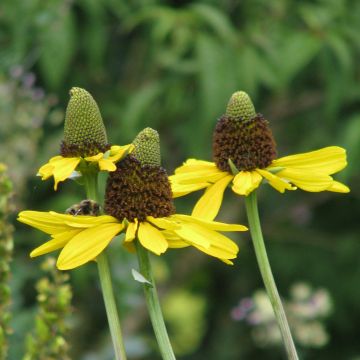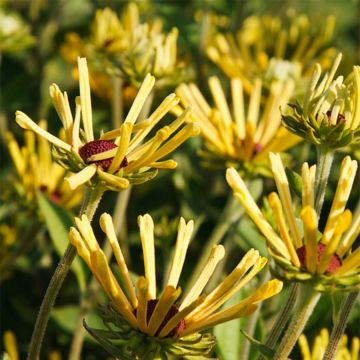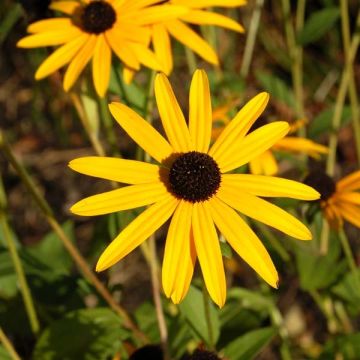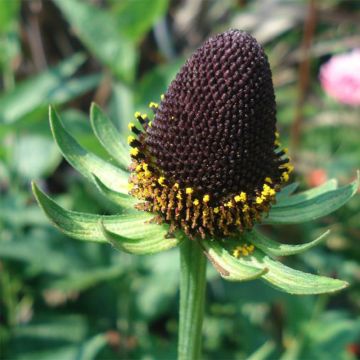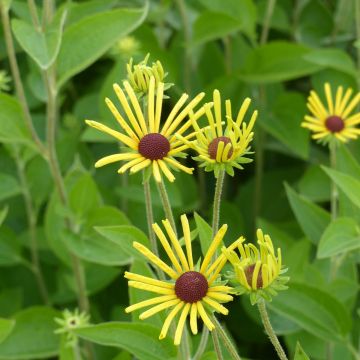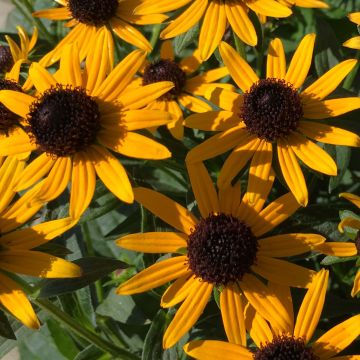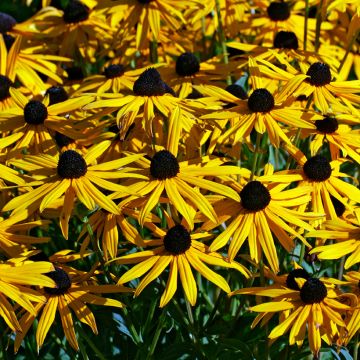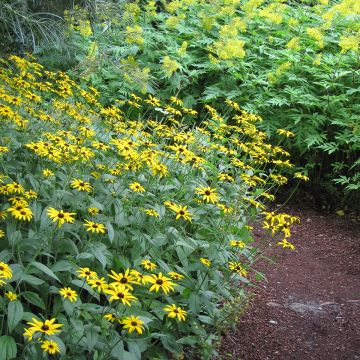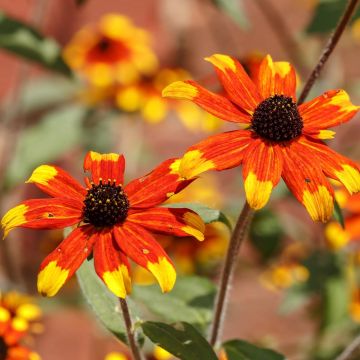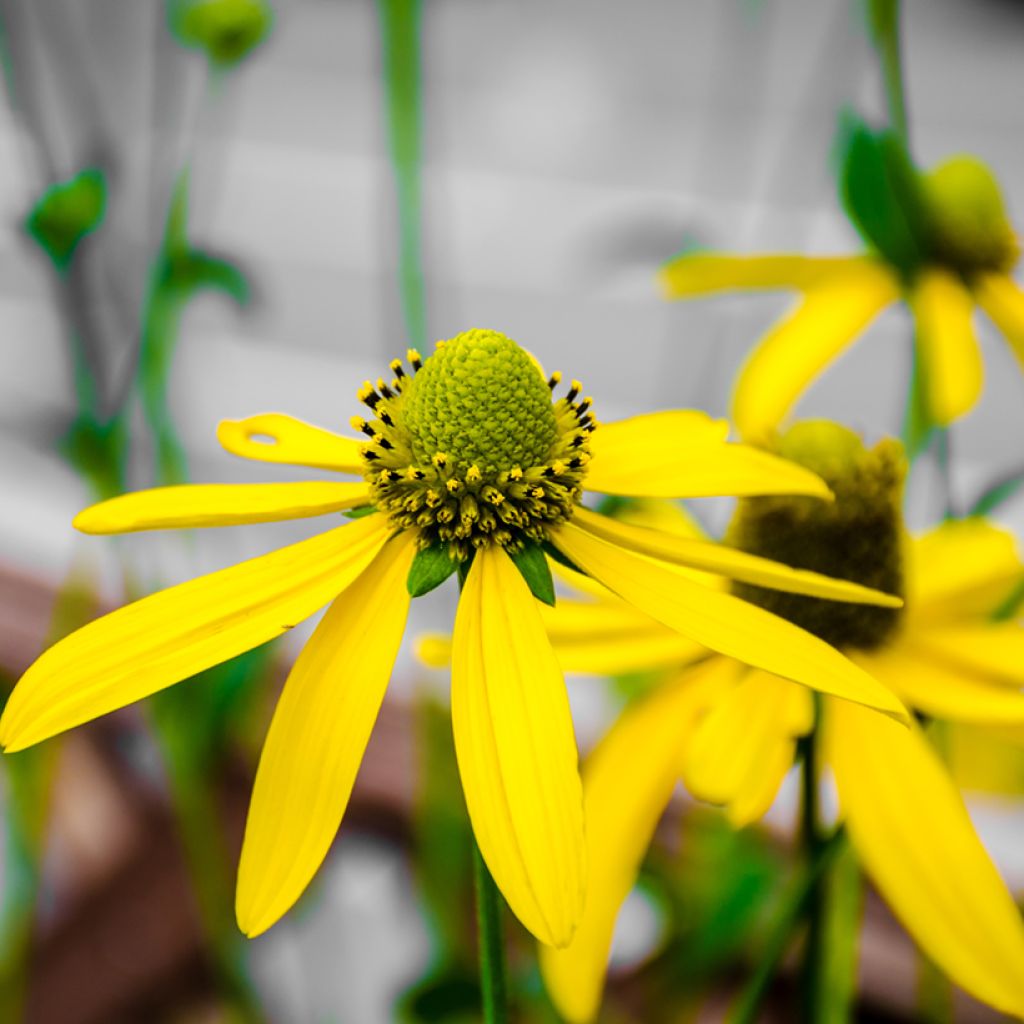

Rudbeckia nitida Herbstsonne
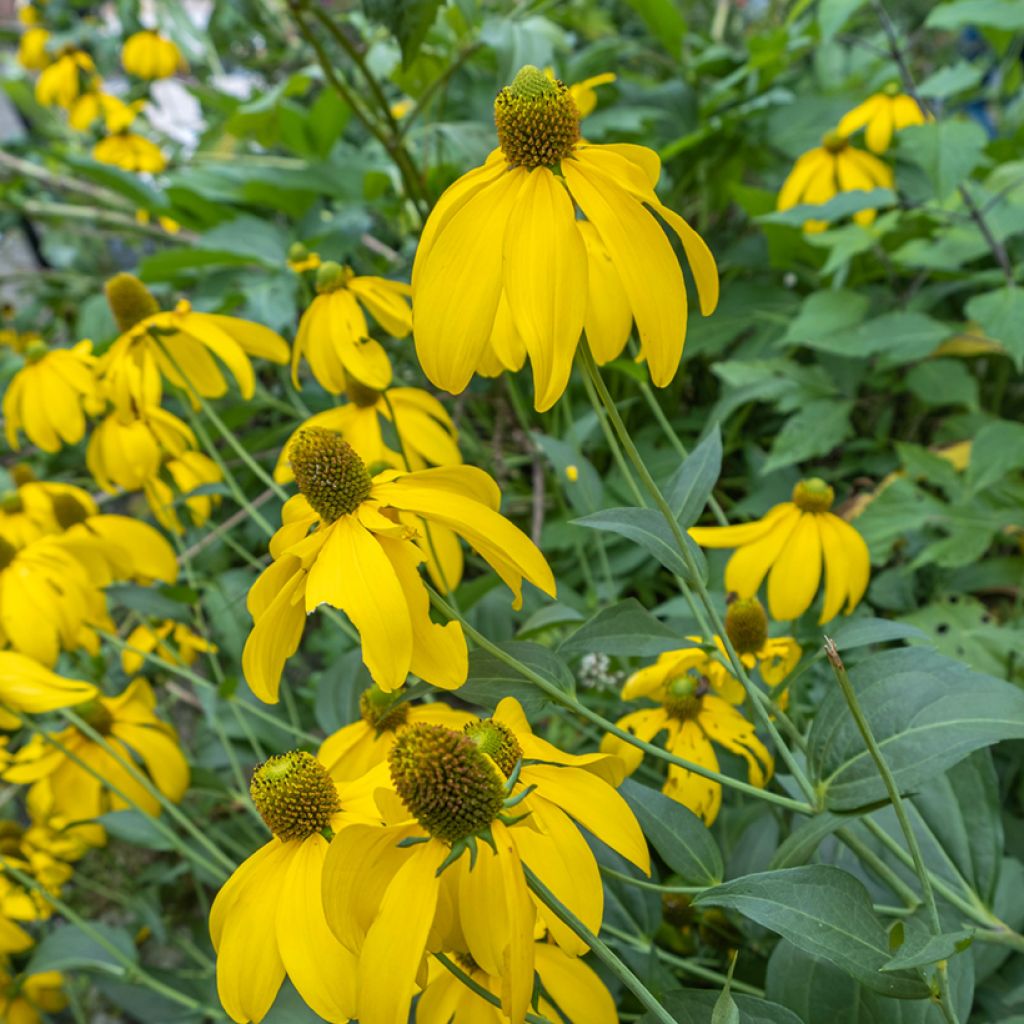

Rudbeckia nitida Herbstsonne
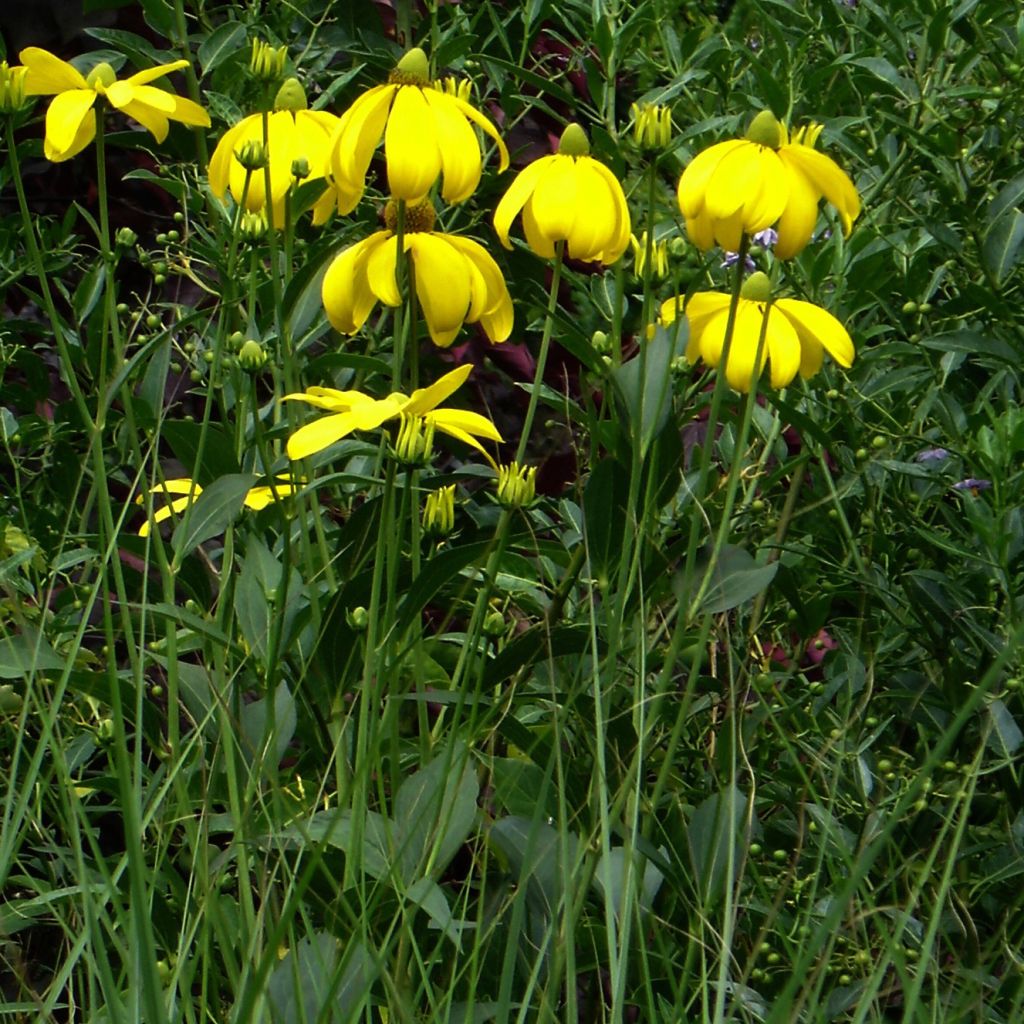

Rudbeckia nitida Herbstsonne
View more pictures
Hide images
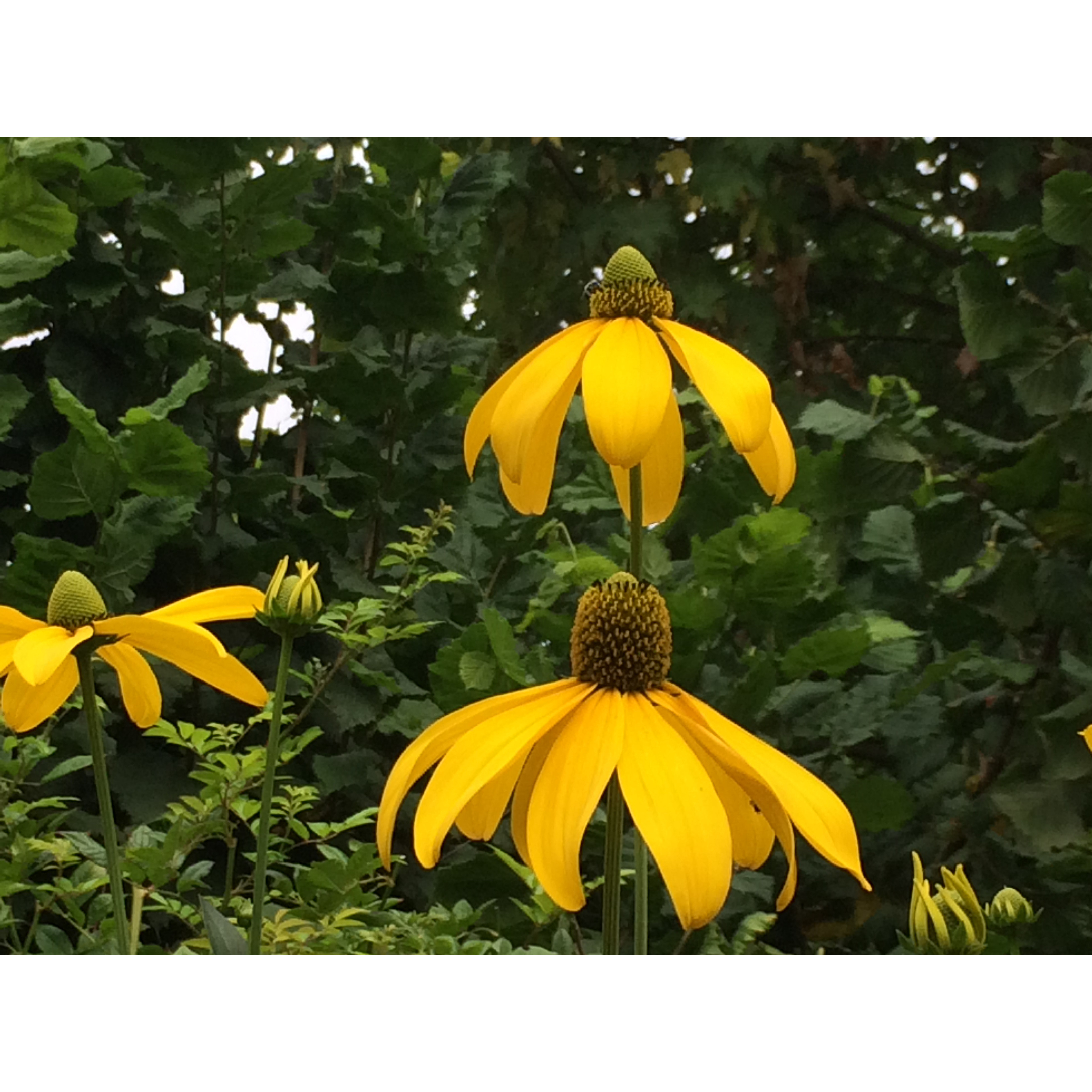
Anne F.

rudbeckia herbstsonne
Anne F. • 93 FR
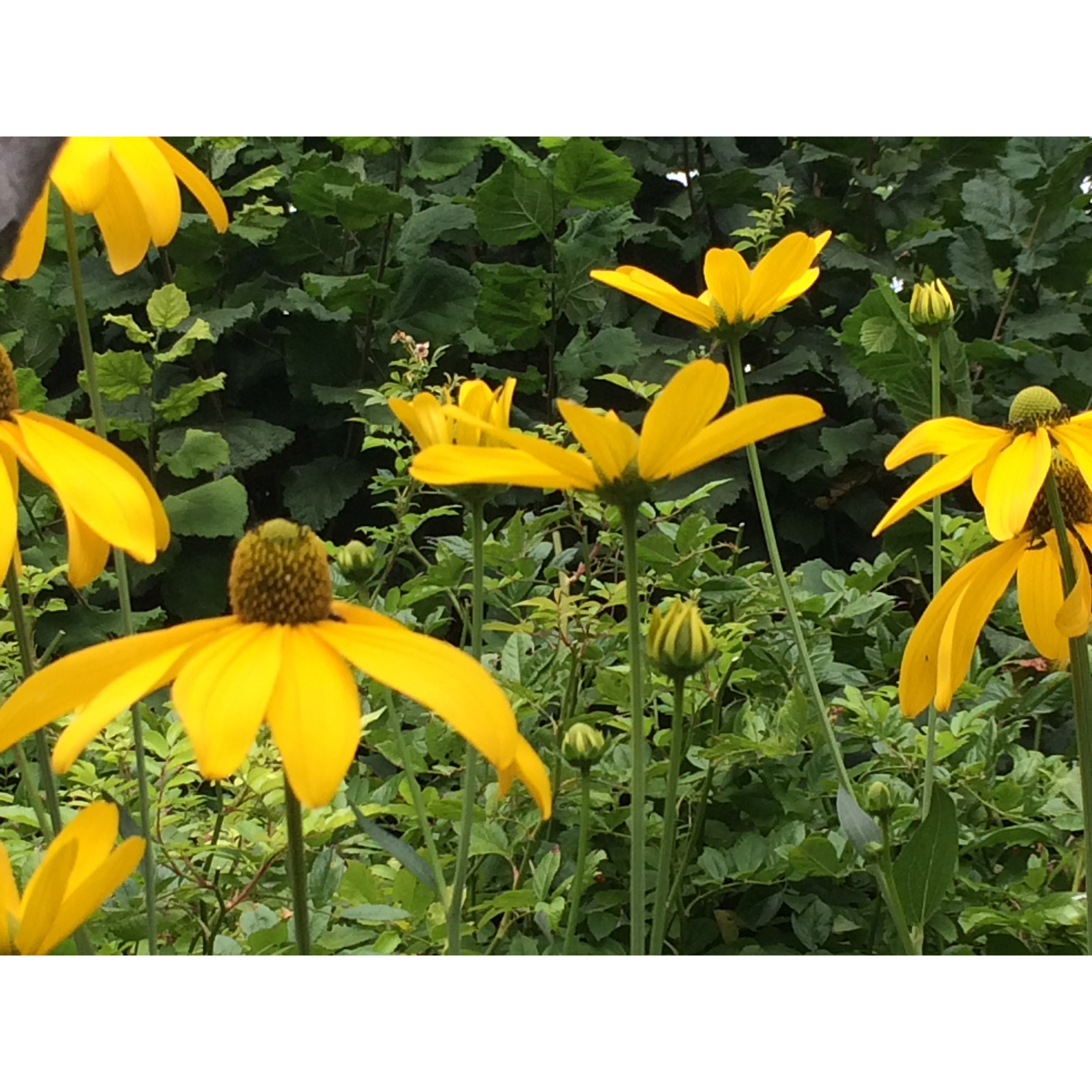
Anne F.

rudbeckia herbstsonne
Anne F. • 93 FR
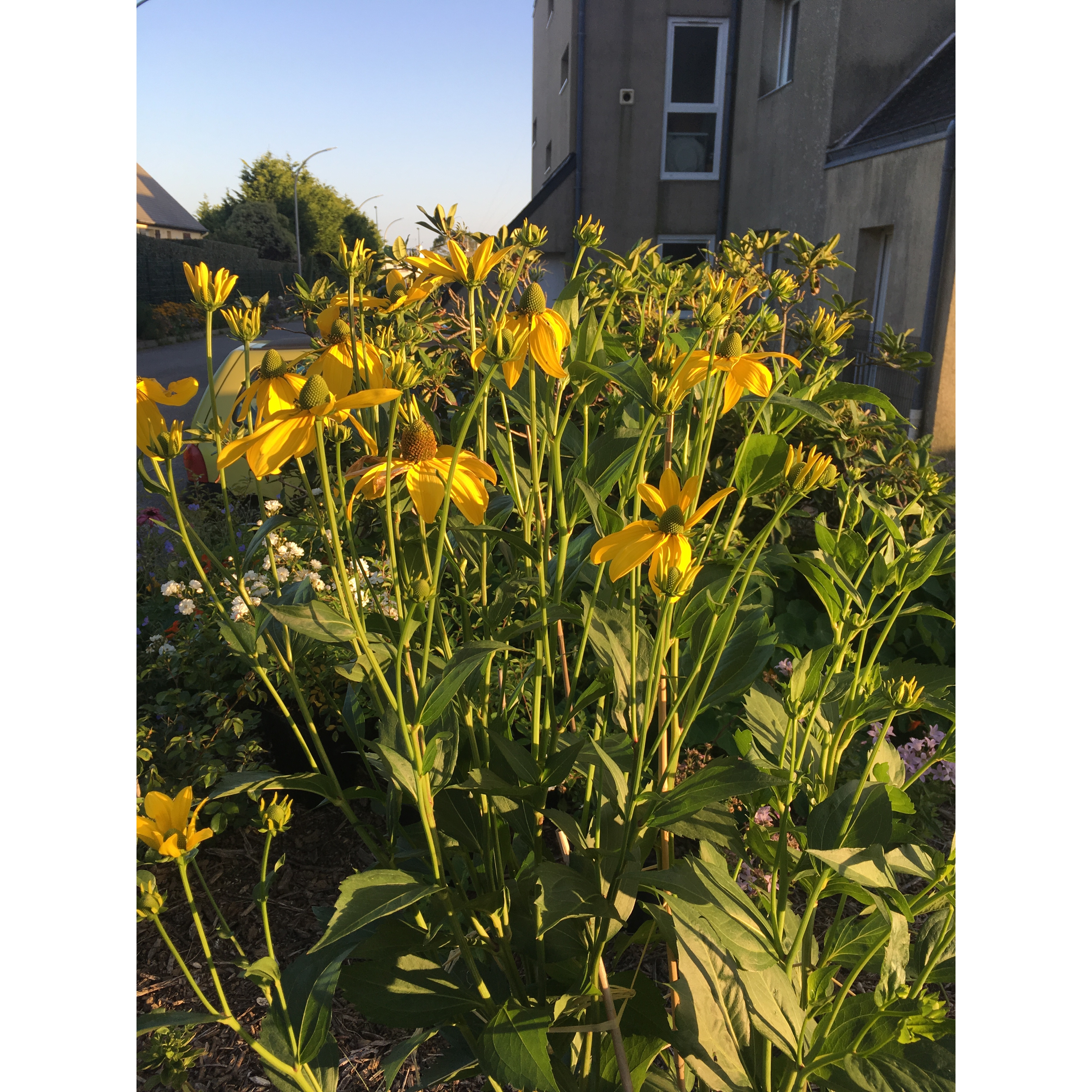
Yann L.

Rudbeckia nitida planted in March
Yann L. • 29 FR
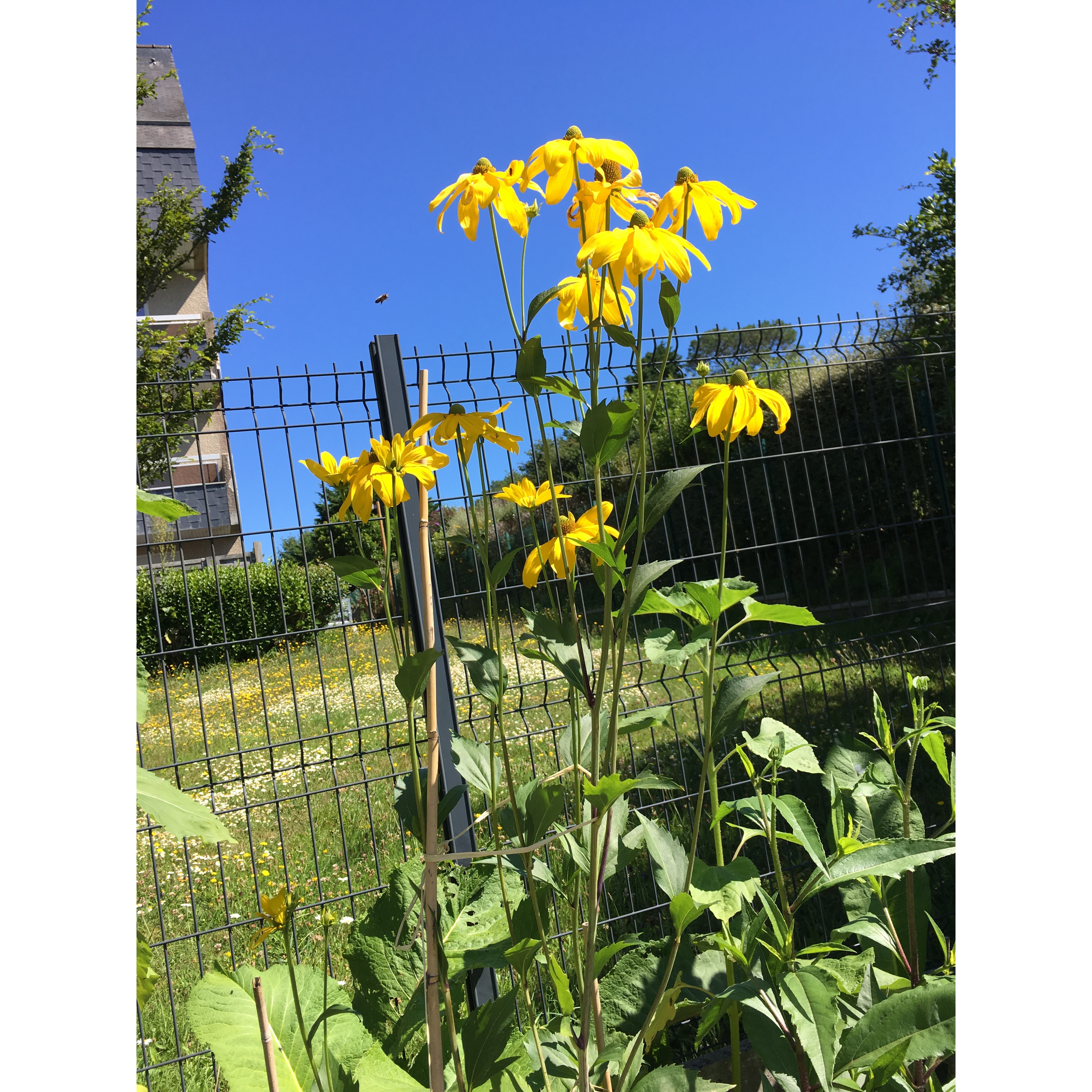
Yann L.

Rudbeckia nitida planted in March
Yann L. • 29 FR
Rudbeckia nitida Herbstsonne
Rudbeckia nitida Herbstsonne
Shiny Coneflower
Purchased in September '24 in a 2/3L pot, the young plant wasn't spectacular, and yet despite this very hot and dry summer it is splendid. A strong presence for a perfect plant in a "naturalistic" setting. It's over 1.5m tall, it's impossible to miss it - I'm thrilled!
Christelle , 26/08/2025
Special offer!
Receive a €20 voucher for any order over €90 (excluding delivery costs, credit notes, and plastic-free options)!
1- Add your favorite plants to your cart.
2- Once you have reached €90, confirm your order (you can even choose the delivery date!).
3- As soon as your order is shipped, you will receive an email containing your voucher code, valid for 3 months (90 days).
Your voucher is unique and can only be used once, for any order with a minimum value of €20, excluding delivery costs.
Can be combined with other current offers, non-divisible and non-refundable.
Home or relay delivery (depending on size and destination)
Schedule delivery date,
and select date in basket
This plant carries a 12 months recovery warranty
More information
We guarantee the quality of our plants for a full growing cycle, and will replace at our expense any plant that fails to recover under normal climatic and planting conditions.


Would this plant suit my garden?
Set up your Plantfit profile →
Description
Rudbeckia nitida 'Herbstsonne', also known as autumn perennial sun, is a giant of the genus. It is a tall plant with an upright habit, and has a spectacular long-lasting flowering from early to late summer. It offers large trailing suns with a nonchalant elegance, gracefully inclined towards the ground, golden yellow with a slightly prominent green heart. This very hardy plant requires a cool to moist, deep and well-drained soil. Its tall stems are rigid and do not require staking, except in windy conditions.
Rudbeckia Nitida 'Herbstsonne' belongs to the Asteraceae family. It is a cultivar of Rudbeckia Nitida or Rudbeckia Laciniata, but some specialists claim that it is actually a hybrid between the two species. Regardless, its origins are found in North America. It is a rhizomatous perennial plant with an upright habit, developing mostly unbranched stems, reaching a minimum height of 1.50m (5ft) to 2m (7ft), with a spread of 80cm (32in). The deciduous foliage is composed of lobed, smooth, light green, glaucous and slightly incised leaves. The flowering takes place from July to September, without interruption. The flowers are large, trailing and can reach 10cm (4in) in width, conical, of a magnificent golden yellow with a prominent green then brown heart. This plant spreads slowly by rhizomes and can eventually form large colonies.
Rudbeckias attract all eyes; they mark the landscape with their golden yellow petals surrounding an almost always prominent and black heart, in a striking contrast. Both an architectural plant and an accent plant, Rudbeckia 'Herbstsonne' quickly structures your flower beds thanks to its slender and sturdy habit, while offering an ornamental interest that is out of the ordinary. Its strong presence requires it to be associated, at the back of the flower bed, with the deep blue of tall delphiniums, or the bright red of salvias, with short-lived flowering plants, such as evening primroses (oenothera versicolor Sunset Boulevard), tall thistles (Milk Thistle, Globe Artichoke, Blessed Thistle), inulas. This plant is well suited to a country garden, and appreciates the edge of water features. Its extraordinary flowers will be highlighted by those of cat-tails, and the graphic design of tall miscanthus (Miscanthus sinensis Yaku-jima, Miscanthus sinensis Silberspinne, Miscanthus transmorrisonensis).
Report an error about the product description
Rudbeckia nitida Herbstsonne in pictures
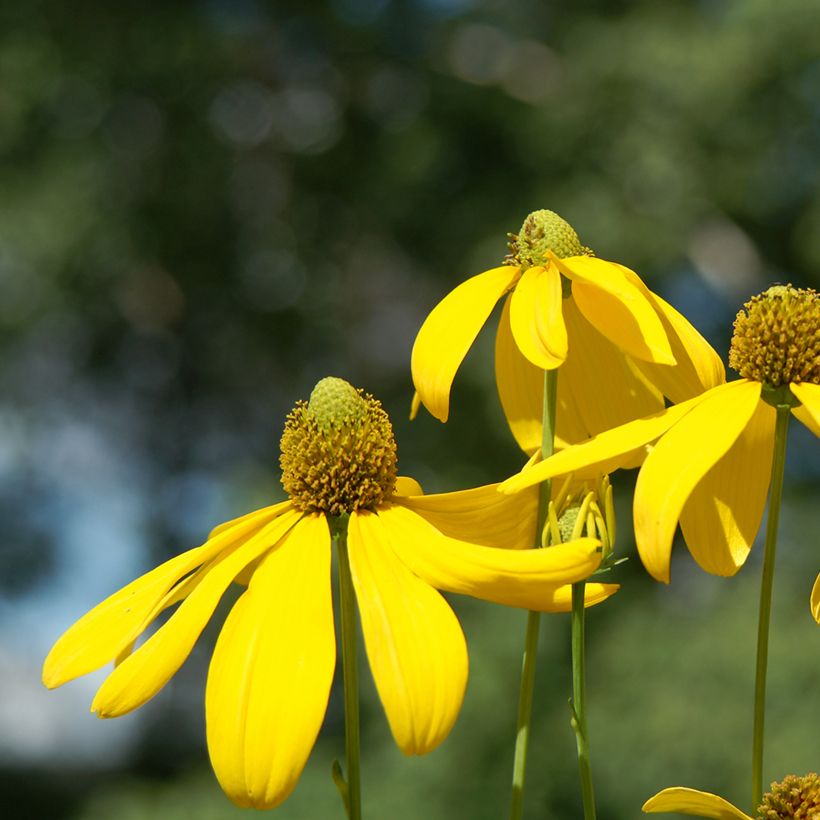

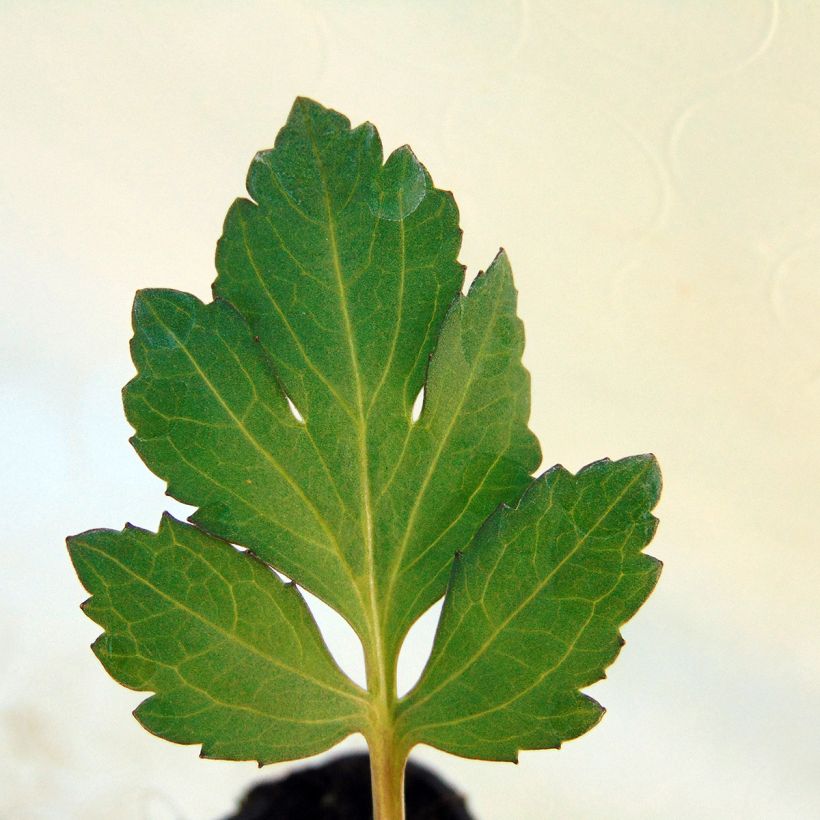

Flowering
Foliage
Plant habit
Botanical data
Rudbeckia
nitida
Herbstsonne
Asteraceae
Shiny Coneflower
Cultivar or hybrid
Other Rudbeckia
View all →Planting and care
Hardy and disease-resistant, this Rudbeckia nitida 'Herbstsonne' is easy to grow and requires very little maintenance (simply prune the faded flowers in early November). It thrives in ordinary soil, even occasionally dry (outside of the flowering period), but has a preference for well-drained, sunny locations. Despite its height, the stems are sturdy and do not require staking, except in windy conditions. Divide the plants when the clumps become too crowded. Remove faded flowers to extend the flowering period. You can also leave the faded flowers in place, along with their fruits, which will provide food for birds.
Planting period
Intended location
Care
-
, onOrder confirmed
Reply from on Promesse de fleurs
Haven't found what you were looking for?
Hardiness is the lowest winter temperature a plant can endure without suffering serious damage or even dying. However, hardiness is affected by location (a sheltered area, such as a patio), protection (winter cover) and soil type (hardiness is improved by well-drained soil).

Photo Sharing Terms & Conditions
In order to encourage gardeners to interact and share their experiences, Promesse de fleurs offers various media enabling content to be uploaded onto its Site - in particular via the ‘Photo sharing’ module.
The User agrees to refrain from:
- Posting any content that is illegal, prejudicial, insulting, racist, inciteful to hatred, revisionist, contrary to public decency, that infringes on privacy or on the privacy rights of third parties, in particular the publicity rights of persons and goods, intellectual property rights, or the right to privacy.
- Submitting content on behalf of a third party;
- Impersonate the identity of a third party and/or publish any personal information about a third party;
In general, the User undertakes to refrain from any unethical behaviour.
All Content (in particular text, comments, files, images, photos, videos, creative works, etc.), which may be subject to property or intellectual property rights, image or other private rights, shall remain the property of the User, subject to the limited rights granted by the terms of the licence granted by Promesse de fleurs as stated below. Users are at liberty to publish or not to publish such Content on the Site, notably via the ‘Photo Sharing’ facility, and accept that this Content shall be made public and freely accessible, notably on the Internet.
Users further acknowledge, undertake to have ,and guarantee that they hold all necessary rights and permissions to publish such material on the Site, in particular with regard to the legislation in force pertaining to any privacy, property, intellectual property, image, or contractual rights, or rights of any other nature. By publishing such Content on the Site, Users acknowledge accepting full liability as publishers of the Content within the meaning of the law, and grant Promesse de fleurs, free of charge, an inclusive, worldwide licence for the said Content for the entire duration of its publication, including all reproduction, representation, up/downloading, displaying, performing, transmission, and storage rights.
Users also grant permission for their name to be linked to the Content and accept that this link may not always be made available.
By engaging in posting material, Users consent to their Content becoming automatically accessible on the Internet, in particular on other sites and/or blogs and/or web pages of the Promesse de fleurs site, including in particular social pages and the Promesse de fleurs catalogue.
Users may secure the removal of entrusted content free of charge by issuing a simple request via our contact form.
The flowering period indicated on our website applies to countries and regions located in USDA zone 8 (France, the United Kingdom, Ireland, the Netherlands, etc.)
It will vary according to where you live:
- In zones 9 to 10 (Italy, Spain, Greece, etc.), flowering will occur about 2 to 4 weeks earlier.
- In zones 6 to 7 (Germany, Poland, Slovenia, and lower mountainous regions), flowering will be delayed by 2 to 3 weeks.
- In zone 5 (Central Europe, Scandinavia), blooming will be delayed by 3 to 5 weeks.
In temperate climates, pruning of spring-flowering shrubs (forsythia, spireas, etc.) should be done just after flowering.
Pruning of summer-flowering shrubs (Indian Lilac, Perovskia, etc.) can be done in winter or spring.
In cold regions as well as with frost-sensitive plants, avoid pruning too early when severe frosts may still occur.
The planting period indicated on our website applies to countries and regions located in USDA zone 8 (France, United Kingdom, Ireland, Netherlands).
It will vary according to where you live:
- In Mediterranean zones (Marseille, Madrid, Milan, etc.), autumn and winter are the best planting periods.
- In continental zones (Strasbourg, Munich, Vienna, etc.), delay planting by 2 to 3 weeks in spring and bring it forward by 2 to 4 weeks in autumn.
- In mountainous regions (the Alps, Pyrenees, Carpathians, etc.), it is best to plant in late spring (May-June) or late summer (August-September).
The harvesting period indicated on our website applies to countries and regions in USDA zone 8 (France, England, Ireland, the Netherlands).
In colder areas (Scandinavia, Poland, Austria...) fruit and vegetable harvests are likely to be delayed by 3-4 weeks.
In warmer areas (Italy, Spain, Greece, etc.), harvesting will probably take place earlier, depending on weather conditions.
The sowing periods indicated on our website apply to countries and regions within USDA Zone 8 (France, UK, Ireland, Netherlands).
In colder areas (Scandinavia, Poland, Austria...), delay any outdoor sowing by 3-4 weeks, or sow under glass.
In warmer climes (Italy, Spain, Greece, etc.), bring outdoor sowing forward by a few weeks.






























